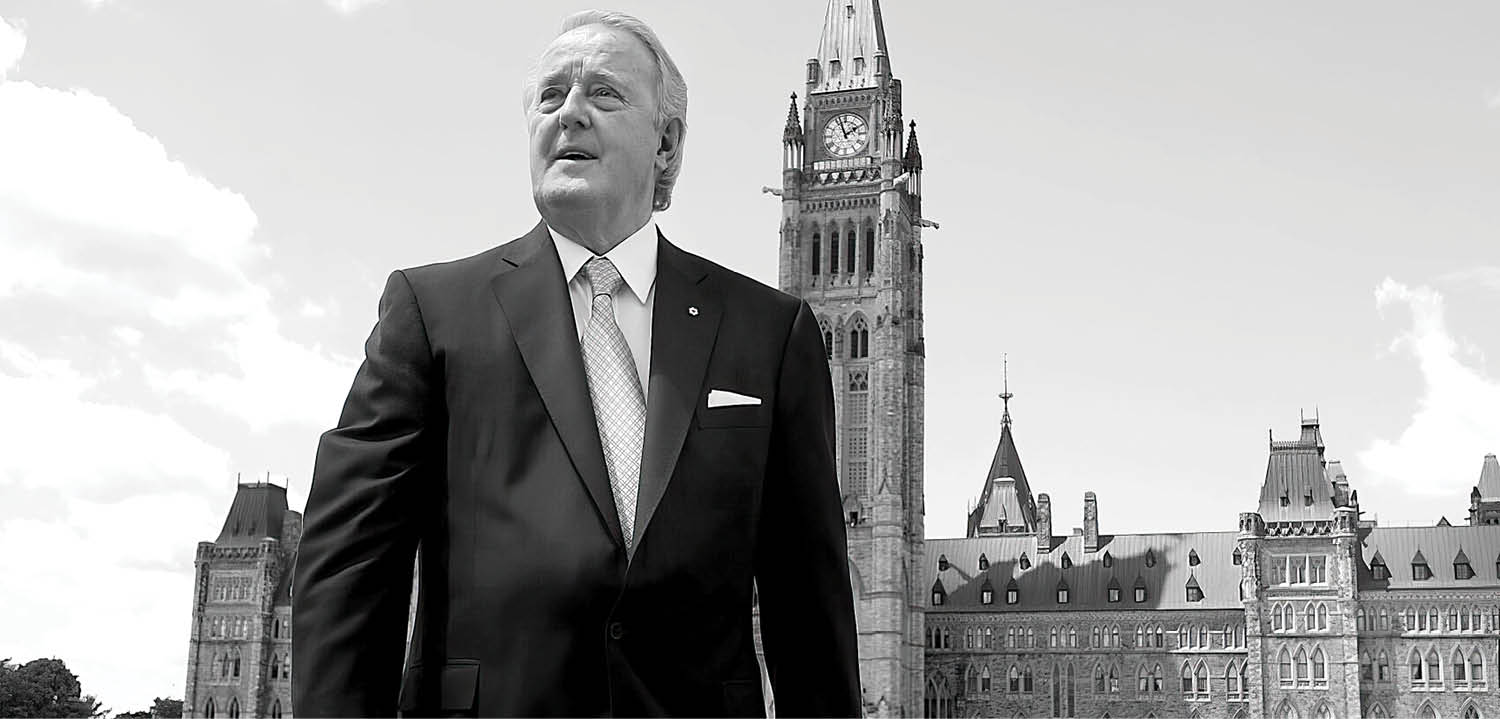Brian Mulroney… His Complex Legacy
Brian Mulroney, the 18th Prime Minister of Canada, served from 1984 to 1993 and left a significant mark on the country’s political landscape. During his time in office, Mulroney achieved several notable accomplishments, but he was also marred by scandals and controversies that overshadowed his successes. On a personal note, l was very fortunate to meet PM Mulroney on several occasions and was always struck by his cool composure and dominance of his surroundings. I have met a few PMs over the years and from where l sit, Brian Mulroney was right up there with the best of them.
When you reflect on his career in politics and business, he had some pivotal issues that he dealt with and was instrumental in implementing political policies that are still in effect including :
Free Trade Agreement
One of Mulroney’s most significant accomplishments was the negotiation and implementation of the Canada-U.S. Free Trade agreement in 1988. This agreement paved the way for increased trade between the two countries and is widely regarded as a milestone in Canadian economic history.
Goods and Services Tax (GST)
Despite facing strong opposition, Mulroney successfully implemented the Goods and Services Tax in 1991. While controversial at the time, the GST has since become a key source of revenue for the Canadian government.
Meech Lake Accord
Although ultimately unsuccessful, Mulroney’s efforts to negotiate the Meech Lake Accord in 1987 aimed to address constitutional issues and recognize Quebec as a distinct society within Canada.
Leadership on Apartheid
Brian Mulroney played a prominent role in advocating for international sanctions against South Africa’s apartheid regime. Canada’s support for the anti-apartheid movement helped pressure the South African government to end its discriminatory policies and transition to a democratic system.
NAFTA Negotiations
While Mulroney is often credited for the successful negotiation of the Canada-U.S. Free Trade Agreement, his government’s approach to trade negotiations also faced criticism for potential negative impacts on Canadian industries and workers. The subsequent North American Free Trade Agreement (NAFTA) negotiations raised concerns about job losses and economic disparities.
One of the most damaging scandals of Mulroney’s tenure was the Airbus Affair. It involved allegations that Mulroney received kickbacks in relation to the purchase of Airbus airplanes by Air Canada. While Mulroney denied any wrongdoing, the scandal tarnished his reputation.
Mulroney’s government faced economic challenges, including high inflation and unemployment rates. The implementation of the GST was met with widespread public opposition and contributed to Mulroney’s declining popularity.
Mulroney’s leadership style and policies often polarized public opinion. His government’s approach to issues such as Indigenous rights and environmental protection faced criticism from various quarters. However, many would say that despite his efforts with the Meech Lake Accord, Mulroney was unable to secure Quebec’s ratification of the agreement, leading to its eventual collapse. This failure highlighted the deep divisions within Canadian society and politics.
The Reform Party grew out of a populist movement in Western Canada, playing a key role in the demise of Mulroney’s PC party. Its architects opposed the Meech Lake and Charlottetown accord, while Mulroney was facing dwindling popular support thanks to his constitutional projects and tax changes.
When the 1993 federal election came, the PQ stole votes from the PCs in Quebec while Reform did the same in the West. In 1993, after Mulroney had stepped down, the party was reduced to only two seats in the House of Commons, while the Bloc won 54 seats and Reform claimed 52. When Mulroney entered the job, he had the largest majority mandate in history. When he left, he had the lowest approval rating in the history of polling.
One other notable point is that in 1994 a book by Stevie Cameron came out titled “On the Take” about the rampant corruption and greed of Brian Mulroney’s time in the prime minister’s office and the effects on his legacy and future of the conservative party. This book was not a highlight of his tenure as Prime Minister.
Brian Mulroney’s time as Prime Minister of Canada was marked by a mix of achievements and challenges, reflecting the complexities of governance and leadership. His contributions to economic policy, international relations, and environmental protection have left a lasting impact on Canadian society.
As we reflect on Mulroney’s legacy, it is essential to acknowledge the nuances of his leadership and the broader context of the political and social issues of his time. While his government made significant strides in certain areas, the controversies and shortcomings of his administration.
Brian Mulroney’s legacy remains a subject of debate and analysis, reflecting the enduring impact of his time in office on Canadian history and politics.
A state funeral for The Right Honourable Brian Mulroney is scheduled for March 23, 2024, in Montreal.
Vince Nigro/MS






Redes Sociais - Comentários